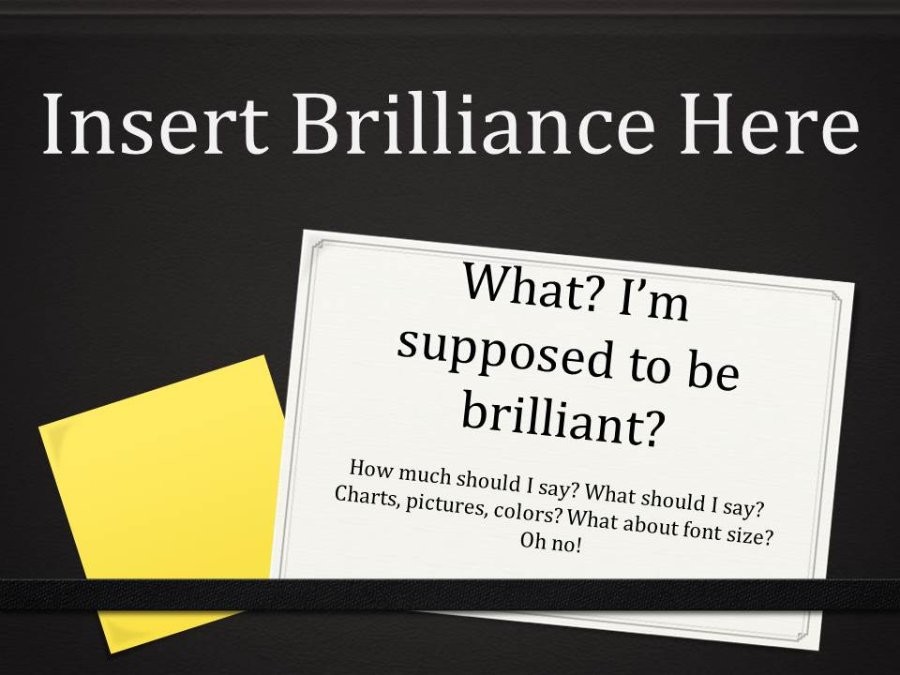HIRE A TOP SPEECHWRITER
How to Have a Brilliant Slide Show (Or Not)
Slide shows have long been a part of public speaking. More often than not, the speaker spends hours dwelling on every jot and tittle. Some of that is good and healthy. The speaker refines his or her message, trying to say clearly and persuasively whatever brings them to the podium. Mostly, though, the speaker is stuck sorting through templates, font choices and figuring out what to say on each slide. That’s not necessarily a bad thing, but we need to remember what’s of primary importance.
A lot has been written in the last few years re-assessing the value of PowerPoint and other similar applications. That’s difficult stuff to keep up with considering most of us have expertise in other areas. How large of a font should be used, how many words per slide, charts or no charts, etc.
Those are important, but secondary questions.
Why?
Like any communications device, the fundamental question is: What do you want it to do? It is a tool question. Why do you need slides? It is there to solve a problem, not to create a question. Everything follows accordingly.
Let’s Talk Hammers and Nails
We look at the nail, and we ask which tool will hammer it in. That’s a good but not great question. The more important question is how do we get X and Y to stick together. In fact, that’s the only question. Supporting issues could be cost, color, and durability of the solution. Helpful, but, once again, secondary. A slide show may, or may not, be necessary.
The use of nail is the obvious, but not only solution. We have concrete, steel girders, and pressure/gravity (like in some ancient Roman constructions) helping get the job done sans nail. Which makes sense?
We might land as expected at using a hammer and nail, but we know exactly why. The creative speaker doesn’t avoid common tools, but chooses them strategically, not passively.
Just because slides are commonly used does not mean they should be. I’ll argue that you shouldn’t use them. That’s where I start. Argue me back into why you are using slides and I’ll know you have wrestled with what’s important.
A presentation’s real problem is always: how do I get my audience to what I want? Answer that and brilliance follows. This is easier said than done — mind reading isn’t yet available as a communications device. There isn’t an app for that… yet. (I’ve pre-ordered mine. Expect to hear from me when it arrives.)
Figure out what you want from your audience, and then, consider if slides fit in. know why you need them. If not, skip them. If so, have a reason for every word on ever slide. Just as with your speech itself, everything needs to have a reason for being there. If not, cut it. You might feel naked without a brightly lit screen behind you, but you just might be a more effective leader.
I’d love to hear your ideas.

Get In Touch
AmerIcan Speechwriter
Atlanta, Georgia
+1 630 890 9351